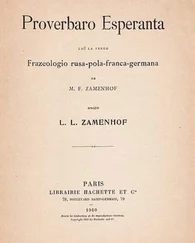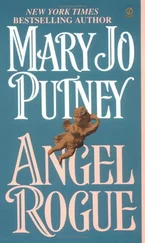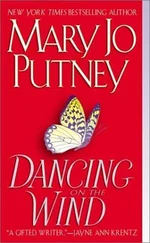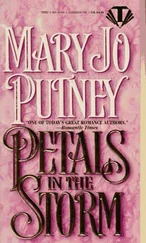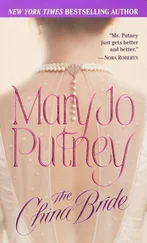She waited, listening to voices at reception, phones ringing, sirens sounding as police cars set off. Waiting. More waiting. There’d been a lot of that in her relationship with Daphne – not the recent experiences of her friend’s lateness, but an underlying inequality that Jane used to believe was linked to Daphne’s beauty, or to the way that people loved her. Maybe it was even reflected in the way Ralph worshipped her – a grown man bowing down before a girl queen. Both Ralph and Jane had been waiting for Daphne’s approval, her affections. Jane may have been an intellectual step ahead, but she was always a large step behind in terms of glory, like a puffy young lady-in-waiting. Even later, when she was with Michael, when they were in love, when she was soon to take his name and become Dr Butterfield, as though they were running into a meadow full of golden flowers. Even then, there was a part of her that believed this good fortune was a mirage, an aberration that couldn’t last. Inside the capable, professional, loving adult skulked a hormone-ravaged, sebum-soaked teenager, defined in relation to Daphne.
Of all the occasions she’d spent hanging around for Daphne, waiting for her in the reception area of the police station was the one to be cherished. A personal victory. Almost absent-mindedly, she dashed off some work emails, half an eye remaining on the people parading their quotidian dramas before her. Eventually, DC Medlar escorted Daphne back. He addressed Jane as though she was her minder. ‘I’ve said I’ll be her Family Liaison Officer, so she can ask me anything. I’m usually at the end of a phone. I’ve given her my mobile for emergencies.’ He had a slight Yorkshire accent she found reassuring. ‘We’ll make this as smooth as possible.’ They all shook hands and he walked off, big-boned and affable.
‘How did it go?’
‘Oh, fine.’ Daphne spoke breezily. ‘Let’s get out of here and I’ll tell you.’ She looked blank – probably her old way of displacing the issue. They went into the first café they came across on the North End Road – a greasy spoon, serving all-day, fry-up breakfasts and smelling of fatty bacon. Both agreed tea would be a better bet than coffee, and were served large mugs of a muddy, brown brew.
‘It’s strange but good,’ said Daphne, finally, grimacing slightly from the tea. ‘As though I can start letting go of something I was carrying alone. It’s become external and public. Out of my hands.’
‘Well yes and no.’ Jane was cautious. ‘You have to want this to go ahead.’
‘He asked me if there were any children in Ralph’s life, and I mentioned grandchildren and his youth choirs. I could see that that changed things. They see him as still being a potential threat.’
‘Did he say if they’ll arrest him?’
‘He’s going to come and see what I have as “evidence” – the diaries and letters and my phone recording. They need to know exactly what happened and when. Then they’ll investigate everything and let me know.’ She looked pleased, buoyant. ‘He said that the time I travelled to Greece with Ralph was abduction! It’s so peculiar to understand it like that. This story was a secret for so long, I almost doubted it was real. And now it’s been given labels, a file, a number, and off it runs with a life of its own.’
‘It’s a huge relief,’ said Jane. ‘There’s a reason we talk about justice. It recalibrates, brings back a balance, even if it’s much later. Like having a body to bury.’
‘You’re so right,’ Daphne said. ‘I remember that feeling of balance when we scattered Ellie’s ashes into the river. It took us ages, well over a year, before we could face doing it. All that time they were just sitting there in a box in the kitchen. Horrible. You remember what it was like then. Purgatory. In the end, we had a ceremony at the river wall. Just me, Ed and Theo. And a bottle of champagne. It must have been windy because when we threw the ash up into the air it floated like a cloud before falling into the water. What I remember is the relief, as though she wasn’t in our hands any more. There was nothing more I could do.’
Jane refrained from remarking that it was right after this that Daphne entered the worst phase of all.
‘I know I wasn’t exactly a model for what to do when you’re bereaved,’ said Daphne, possibly anticipating Jane’s objections. ‘I don’t mean that the scattering got rid of the sadness or anything. I know I struggled. But it marked a change. A weight shifted.’ Jane tried to remember any sign of this shift, but she had never felt further from her old friend than then, when Daphne went off to Greece and came back married. Jane was a student, while Daphne was living the high life with Constantine. A natural rebel and child of the ’60s, she seemed to have easily embraced the world of private yachts and helicopters.
Once, during that unappealing millionaire phase, Daphne was over from Greece and invited Jane to Barnabas Road. Edmund was giving a Last Lunch before selling the place. The walls of the staircase leading down to the kitchen were still papered with faded revolutionary posters and curling newspaper cuttings. That would all be gone before long. No doubt the whole house would be stripped. They sat at the massive kitchen table marked by the cuts and burns of thousands of gatherings and Ed made an effort to provide a nice meal, with plates of charcuterie, cheeses and salads and some good red wine. He had aged – his tall frame more hunched, his face tired and hair greyer and shorter. The limp that had always been there was more pronounced and even his hippy glad rags had been replaced by a dark, sober shirt and jeans.
Jane was filled with nostalgic pleasure to see her and to attend this last meeting in Barnabas Road, where every painting and piece of furniture provoked a chain of memories. She hoped they would walk around, sit in Daphne’s old room and watch the boats go by, remember things that had seemed important at the time. But it hadn’t been like that at all. Daphne was skeletally thin with an absent expression – she’d probably taken something – though her suntan gave her a superficial radiance. She was wearing an astonishing gold necklace that glittered and distracted.
‘Looted from an ancient tomb?’ enquired Edmund tartly.
Her pale silky dress hung in complex, asymmetrical layers and, when Jane complimented her on it, Daphne admitted it was couture. ‘Constantine had it made for me in Milan,’ she laughed, part apologetic, part charmed by this unlikely turn of events. ‘I had to go for a fitting.’ Jane thought Ellie would be turning in her grave – if she’d had one. That flimsy piece of fabric probably cost as much as her term’s living expenses in Norwich.
She had hoped Daphne would notice her metamorphosis – she was no longer a plain, bespectacled heifer; there’d been several boyfriends. Later, though, she realised her own alterations were modest in comparison with the personality-altering, fashion-twisting transformations that Daphne sped through without a backward glance. It sometimes seemed she was pretending, so often had she shed her skin and changed her story. Pretending to be someone else, or, perhaps more worryingly, pretending to be herself. It wasn’t just the jumps from barefoot wood-sprite to punk-romantic to designer-brand, jet-set wife, it was the chameleon ability to make the alterations seem substantial and part of her character.
Now, with her denunciation of Ralph, Daphne had changed yet again. She had become a moral crusader, model mother and righteous survivor confronting the wrongs of the past. Of course I’m pleased, Jane thought. Ralph deserves everything he gets. I was there. I know what he did. Roll on the chains. Nevertheless, Daphne’s capacity for changing her mind sometimes made it look as if nothing in the world was fixed or true, as if there were no hard certainties of the sort that fired Jane’s work and steeled her opinions.
Читать дальше

